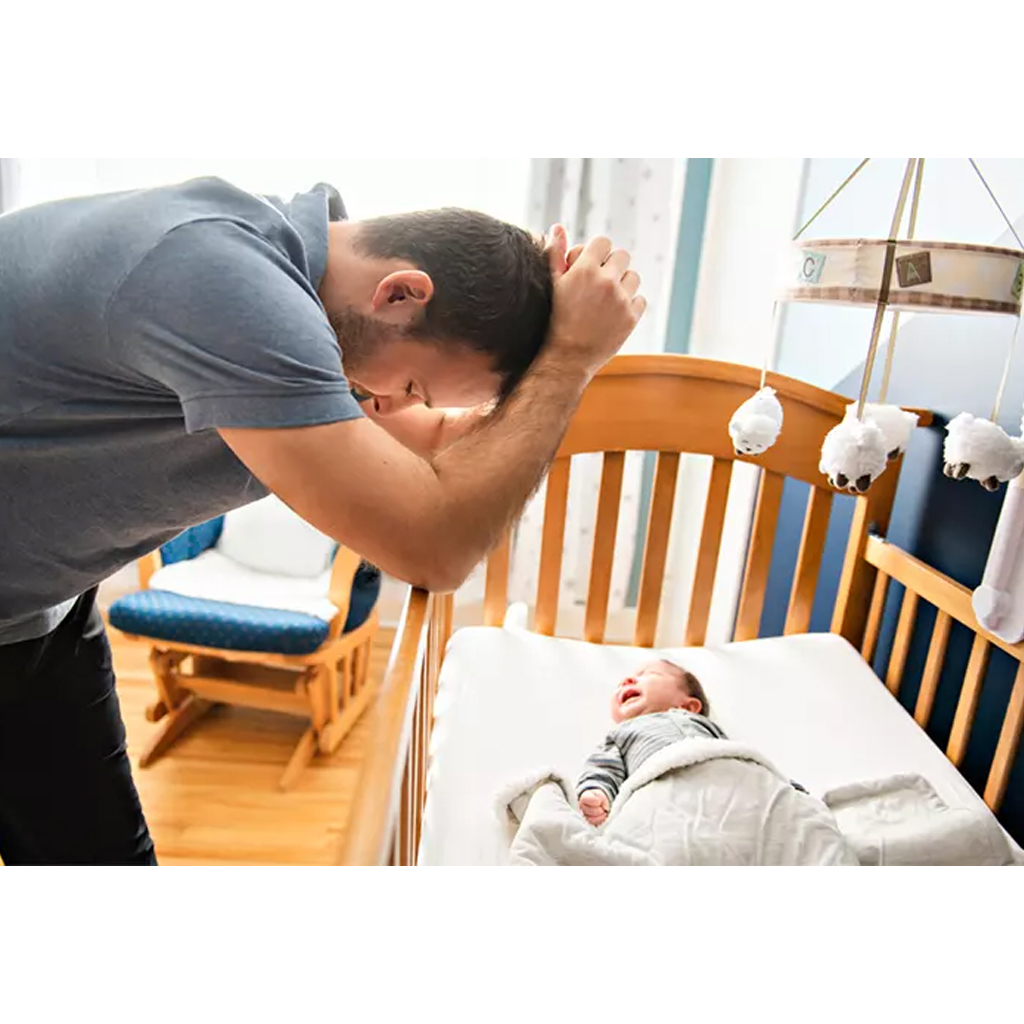Men's Changes After 𝘤𝘩𝘪𝘭𝘥𝐛𝐢𝐫𝐭𝐡: A Journey of Physical and Emotional Transformation
It appears that men can undergo a wide range of physical and psychological changes when they become fathers, much like the changes a woman's body experiences during pregnancy and 𝘤𝘩𝘪𝘭𝘥𝐛𝐢𝐫𝐭𝐡.

Due to hormonal shifts and even pregnancy symptoms, men can experience a variety of emotions. Although these conditions may manifest differently in men than in women, they do exist. Isn't it fascinating? It's time to recognize that many men undergo significant changes after the 𝐛𝐢𝐫𝐭𝐡 of their 𝘤𝘩𝘪𝘭𝘥. Would you like to explore the physical and mental effects of pregnancy on you and your partner? Read on to discover!

Men Can Experience Significant Emotional Strife
Mothers are not the only ones under stress after the 𝐛𝐢𝐫𝐭𝐡 of a 𝘤𝘩𝘪𝘭𝘥. While they are more directly responsible for meeting the baby's needs, such as nursing and comforting, having a new family member who depends on them and whom they must provide for can cause new fathers to experience elevated levels of stress and anxiety.

Unfortunately, most men believe they cannot seek assistance when they feel uncomfortable with their new roles. They do not want to distract their female companions or cause them concern. However, it is entirely normal for males to experience emotional turmoil after the 𝐛𝐢𝐫𝐭𝐡 of a 𝘤𝘩𝘪𝘭𝘥, and seeking assistance will help them adjust to the changes more effectively.
Some Brain Alterations May Also Occur

Interestingly, the hormonal changes can also cause alterations in the brain. Scientists studied the brain activity of a group of new fathers and observed that during the first four months after 𝘤𝘩𝘪𝘭𝘥𝐛𝐢𝐫𝐭𝐡, the gray matter of their brains underwent noticeable alterations.
These modifications are significant because they help new fathers develop their parenting skills and form a strong rapport with their offspring. These early father-child interactions establish a solid foundation for the future parent-child relationship and play a crucial role in the child's cognitive and social development as they mature. The brain of a new father exhibits increased activity in very specific areas, including planning, problem-solving, and sensitive detection. These areas assist the father in ensuring their child's safety. How fascinating!

Highs and Lows Can Contribute to Postpartum Depression in Men
Most of us have heard of postpartum depression in women, as it is considerably more prevalent and detectable. But did you know that males are also susceptible to postpartum depression? This may come as a surprise, but it is not as far-fetched as you may believe. In addition to its other functions, testosterone plays a significant role in preventing us from feeling depressed, and when its levels decline, young fathers may become more susceptible to depression. These hormonal changes combined with the weight of fatherly responsibilities can be quite daunting for men, making them susceptible to mental health problems. It is crucial to understand that hormonal and behavioral changes also occur in the bodies of fathers.
The Concentrations of Oxytocin and Dopamine Rise

Yes, additional hormones are on their way to you. Lower levels of testosterone allow for the entry of novel hormones into a man's system. Oxytocin and dopamine are essential because they are responsible for the parent-child bond. The positive effects of oxytocin and dopamine increase after a male has a child, causing him to appreciate playing and cuddling with his child more. How incredible is that!
The Concentration of Testosterone May Fall

Men produce the hormone known as testosterone, whereas women produce estrogen. A high quantity of testosterone is responsible for aggressive and competitive behavior, as well as the ability to allure a new partner. However, something intriguing occurs when they become fathers. The level of testosterone in men appears to decline. This suggests that the male should direct his energy inward, towards the welfare of his family, rather than external pursuits.

Studies also indicate that men with a partner and those with children have lower testosterone levels than men without children and those still looking for a partner. This likely reflects how biology alters a man's priorities over time. The male bodies discovered how to reduce testosterone levels to alter men's priorities and transform them into devoted fathers.

New fathers undergo numerous psychological and physical changes, which must also be addressed. Consequently, it is essential for partners to spend time with one another and form a family unit during those initial months.



